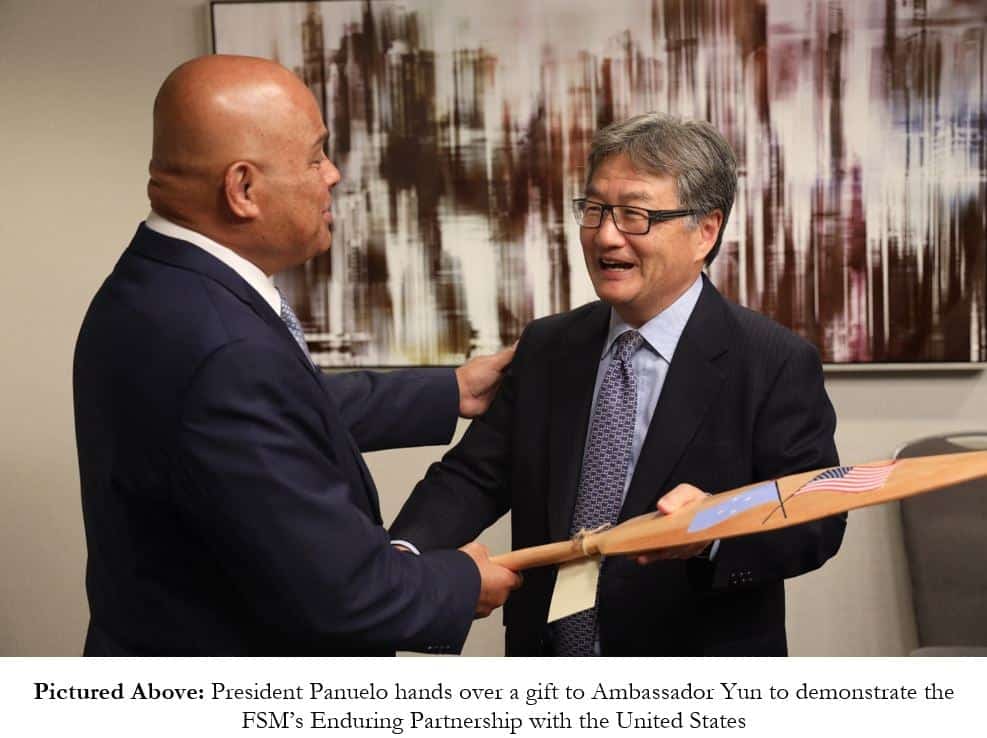The Biden administration has committed to renewing the Compacts of Free Association, with Palau, Micronesia, and the Marshall Islands.
The promise of renewal of the partnership agreements from the United States is part of the 16-page document due to the first-ever U.S.-Pacific Island Country Summit.
In the Strategy, the U.S. said the compact with Palau, FSM, and RMI “have formed a bedrock of U.S.-Pacific cooperation for nearly four decades.”
The U.S. said to show how committed the U.S. is to the Freely Associated States (FAS) countries, President Biden appointed Ambassador Joseph Yun as Special Presidential Envoy for Compact Negotiations in March.
The U.S said since then, Yun has led an interagency team that includes senior officials from the Departments of State, Interior, Defense, Energy, and the White House in multiple negotiations.
“We expect the negotiations for all three Compact agreements to conclude by the end of this year; current agreements expire in September 2023 for the FSM and RMI, and one year later for Palau.”
At the Summit, FSM, RMI, and Palau leaders have “expressed appreciation at the progress in the negotiations and a strong desire to conclude the negotiations by the end of this year.”
This is despite Ambassadors of Palau, FSM, and RMI based in Washington, DC sending a letter a day before the summit to Kurt Campbell, the U.S. National Security Council’s Indo-Pacific coordinator, saying that the “U.S. proposed economic assistance is insufficient.”
In the letter, the ambassadors said there is a gap between the needs of the people and what has been offered by the U.S..
“The U.S. proposed economic assistance seems predetermined and based on insufficient analysis.”
The three countries however said that they are confident that an agreement will be reached which will be mutually beneficial to both parties.
